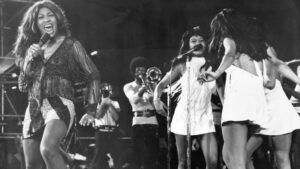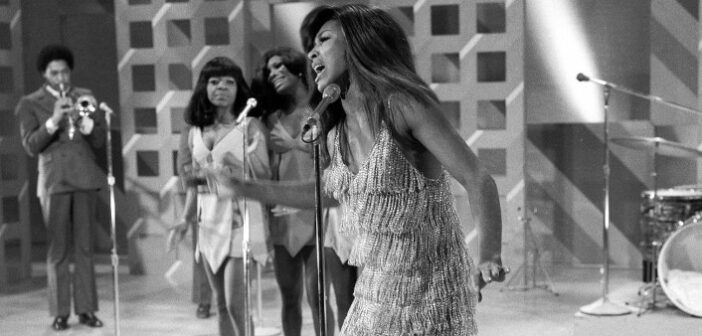Tina Turner’s impact on popular music and culture is immeasurable, her bold resilience in the face of personal trauma and professional challenges is a testament to her strength.
Tina Turner is undoubtedly one of the most iconic and influential figures in the history of popular music. Her captivating performances, strong voice, and tenacity have captured the attention of people all around the world. Turner’s connection with the Black American community, however, has been complicated and occasionally strained behind the scenes. In this article, we examined the shifting dynamics in her glorious career and the opportunity for reconciliation while delving deeper into the elements that have contributed to the complexity of this relationship.

In the 1960s, when there was a lot of racial segregation and prejudice in the US, Tina Turner started to become well-known. She broke down barriers when she joined forces with “Ike & Tina Turner,” finding success in musical genres that were dominated by white artists. Many African Americans found inspiration and hope in her accomplishment because it showed that racial barriers could be overcome in the entertainment business. Turner, a Black lady who dominated stages and set records, became symbol of empowerment and representation for many. Her successes were viewed as victories that are a source of pride and inspiration for the whole Black American community.
Ike Turner, Tina Turner’s ex-husband and former musical partner, severely abused her, hiding her personal life behind the dazzling front. When it was revealed that she had been subjected to both physical and psychological abuse during their marriage, it startled many people and sparked an international outpouring of sympathy and support. She received criticism from some Black Americans for revealing “dirty laundry” and supporting inaccurate preconceptions about Black relationships. This criticism, which reflected the difficulties surrounding talks of race and gender in the community, was motivated by worries about maintaining stereotypes and internalised racism.
Tina Turner made the crucial choice to relocate to Europe in the late 1970s, where she experienced newfound popularity as a solo artist. While some praised her for achieving professional and personal freedom, others believed she had abandoned the hardships of Black Americans. Some segment of the Black American community believed that her departure represented a lost chance to support the ongoing fight for racial equality in the country. Her ties to the neighborhood and her function as a spokesperson for Black culture were called into question by this geographic change.
Tina Turner’s 1980s transformation into a rock icon cemented her position as a global icon. Her musical reorientation towards a largely white audience, however, caused a rupture with some elements of the Black American community. Some said she had forsaken her roots and prioritized economic success over the advancement of Black heritage and culture.
Later in life, Tina Turner made an effort to embrace her African American background and make amends with her history. She wrote about her experiences with abuse in her autobiography, “I, Tina,” and the biographical movie that followed, “What’s Love Got to Do with It,” which shone light on the subject and raised awareness of it among Black people. These initiatives were viewed as a start towards mending the relationship’s fractures and encouraging conversation about significant concerns.
Tina Turner’s relationship with the Black American community is complex and influenced by historical background, individual circumstances, and artistic decisions. While her success surely provided opportunities for other Black artists, it also drew criticism and raised concerns about her dedication to the causes of the community. In the end, Tina Turner’s story serves as a reminder that public personalities are complex people who have to make their own special decisions and overcome their own particular obstacles. It is possible to reflect on and have a conversation about the complexity of race, identity, and fame in America by comprehending the subtleties of this fragmented relationship. Despite the fact that Turner broke down barriers and gained tremendous success, the public has reacted negatively and favorably to her choices and aesthetic vision. However, her contributions to music, her openness about her personal challenges, and her final attempts at reconciliation have helped to spark crucial dialogues about race, gender, and cultural identity. Recognizing the varied perspectives and difficulties of Black artists in society requires understanding and debate about this fragmented relationship.
“My legacy is that I stayed on course, from beginning to the end..because I believed in something inside of me.” – Ms. Tina Turner. 1939-2023.
🙌🏾👑🕊️🕯️ #TinaTurner
Rest In Peace ✨ pic.twitter.com/afacEQadE1— JODY WATLEY (@jodywatley) May 26, 2023




